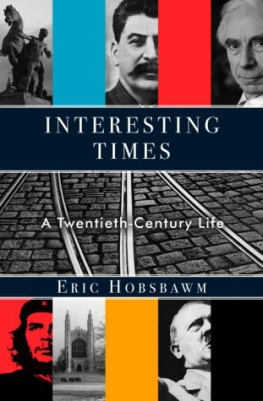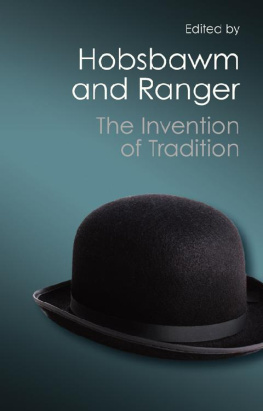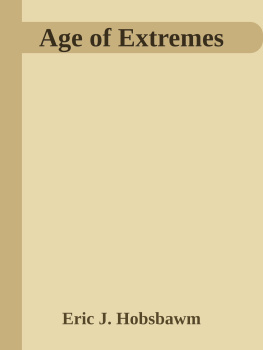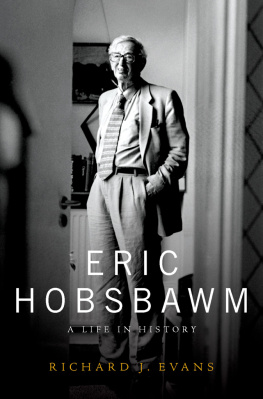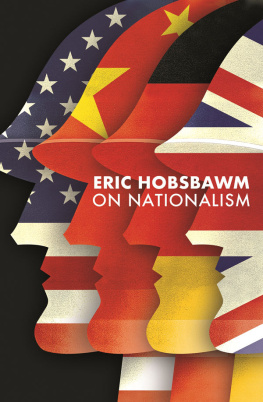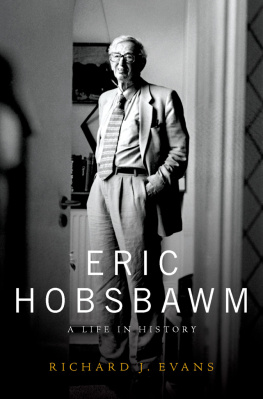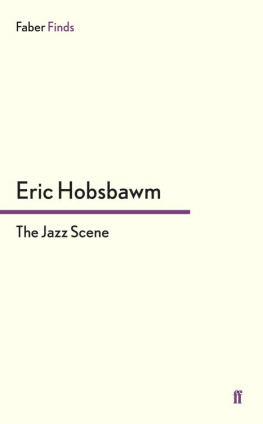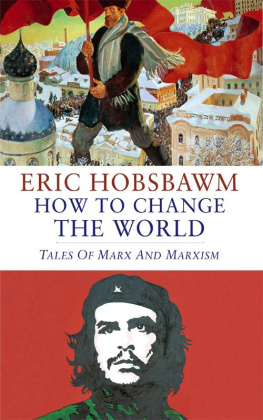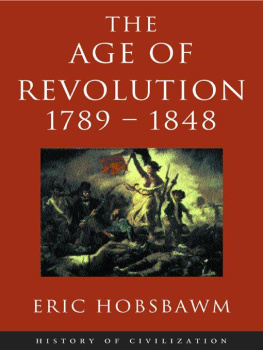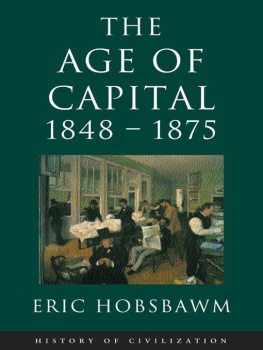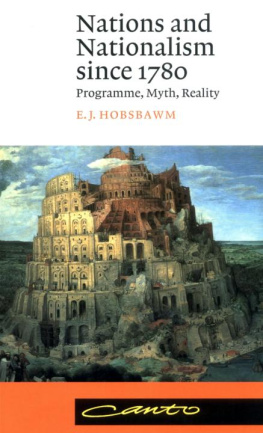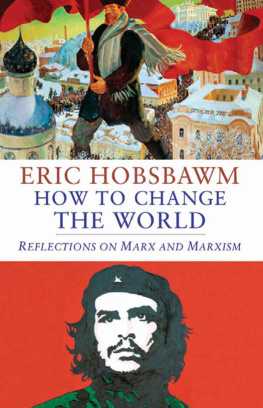
Table of Contents
To my grandchildren
List of Illustrations
Photographic acknowledgements appear in parentheses.
1. Mimi, Nelly and Gretl Grn
2. Percy, Ernest and Sidney Hobsbaum
3. Nelly and Percy Hobsbaum
4. Aunt Gretl
5. Mother, Nancy, cousin Peter and EH
6. Camping with Ronnie Hobsbaum
7. School-leaving photograph at the Prinz-Heinrichs-Gymnasium
8. The Popular Front government celebrates Bastille Day
9. World student conference, Paris 1937
10. James Klugmann and delegates at the Congress of World Student Assembly, Paris 1939
11. John Cornford
12. British Communist historians delegation to Moscow, 1954
13. British historians at Zagorsk
14. EH in Rome, 1958
15. Eightieth birthday cake, Genoa 1997
16. Italy 2000: reading Il Manifesto (Vincenzo Cotinelli)
17. Trafalgar Square 1961: front page of Daily Herald ( Daily Herald )
18. Trafalgar Square 1961: EH among policemen ( Daily Herald )
19. Marlene and EH (Enzo Crea)
20. EH before the era of computers
21. George Eisler
22. Pierre Bourdieu
23. Ralph Gleason
24. Clemens Heller
25. EH with President Cardoso
26. Hortensia Allende
27. EH lecturing in Mexico
28. EH above Llyn Arddy, Wales
29. In Gwenddwr, Powys
30. EH and Markus Wolf
31. An old historian (Giuliano Ben Vegn)
Preface
Writers of autobiographies have also to be readers of autobiographies. In the course of writing this book I have been surprised to find how many of the men and women I have known have gone into print about their own lives, not to mention the (usually) more eminent or scandalous ones who have had them written by other people. And I am not even counting the considerable number of autobiographical writings by contemporaries disguised as fiction. Perhaps the surprise is unjustified. People whose profession implies writing and communicating tend to move around among other people who do so. Still, there they are, articles, interviews, print, tapes, even videotapes, and volumes such as this, a surprisingly large number of them by men and women who have spent their careers in universities. I am not alone.
Nevertheless, the question arises why someone like myself should write an autobiography and, more to the point, why others who have no particular connections with me, or may not even have known of my existence before seeing the jacket in a bookshop, should find it worth reading. I do not belong to the people who appear to be classified as a special sub-species in the biography section of at least one London bookshop chain as Personalities, or, as the jargon of today has it, celebrities, that is to say people sufficiently widely known, for whatever reason, for their very name to arouse curiosity about their lives. I do not belong to the class whose public lives entitle them to call their autobiographies Memoirs, generally men and women who have actions on a wider public stage to record or defend, or who have lived close to great events and those who took decisions affecting them. I have not been among them. Probably my name will figure in the histories of one or two specialized fields, such as twentieth-century Marxism and historiography, and perhaps it will crop up in some books on twentieth-century British intellectual culture. Beyond that, if my name were somehow to disappear completely from sight, like my parents gravestone in the Vienna Central Cemetery, for which I vainly searched five years ago, there would be no discernible gap in the narrative of what happened in twentieth-century history, in Britain or elsewhere.
Again, this book is not written in the now very saleable confessional mode, partly because the only justification for such an ego-trip is genius I am neither a St Augustine nor a Rousseau partly because no living autobiographer could tell the private truth about matters involving other living people without unjustifiably hurting the feelings of some of them. I have no good reason for doing so. That field belongs to posthumous biography and not to autobiography. In any case, however curious we are about these matters, historians are not gossip columnists. The military merits of generals are not to be judged by what they do, or fail to do, in bed. All attempts to derive Keyness or Schumpeters economics from their rather full but different sex lives are doomed. Besides, I suspect that readers with a taste for biographies that lift bedclothes would find my own life disappointing.
Nor is it written as an apologia for the authors life. If you do not want to understand the twentieth century, read the autobiographies of the self-justifiers, the counsels for their own defence, and of their obverse, the repentant sinners. All of these are post-mortem inquests in which the corpse pretends to be the coroner. The autobiography of an intellectual is necessarily also about his ideas, attitudes and actions, but it should not be a piece of advocacy. I think this book contains answers to the questions that I have been most often asked by journalists and others interested in the somewhat unusual case of a lifelong but anomalous communist and Hobsbawm the Marxist historian, but answering them has not been my object. History may judge my politics in fact it has substantially judged them readers may judge my books. Historical understanding is what I am after, not agreement, approval or sympathy.
Nevertheless, there are some reasons why it may be worth reading, apart from the curiosity of human beings about other human beings. I have lived through almost all of the most extraordinary and terrible century in human history. I have lived in a few countries and seen something of several others in three continents. I may not have left an observable mark on the world in the course of this long life, although I have left a good quantity of printed marks on paper, but since I became conscious of being a historian at the age of sixteen I have watched and listened for most of it and tried to understand the history of my lifetime.
When, having written the history of the world between the late eighteenth century and 1914, I finally tried my hand at the history of what I called The Age of Extremes: The Short Twentieth Century , I think it benefited from the fact that I wrote about it not only as a scholar but as what the anthropologists call a participant observer. It did so in two ways. Clearly my personal memories of events remote in time and space brought the history of the twentieth century closer to younger readers, while it reawakened their own memories in older ones. And, more even than my other books, however compelling the obligations of historical scholarship, this one was written with the passion that belongs to the age of extremes. Both kinds of readers have told me so. But beyond this there is a more profound way in which the interweaving of one persons life and times, and the observation of both, helped to shape a historical analysis which, I hope, makes itself independent of both.
That is what an autobiography can do. In one sense this book is the flip side of The Age of Extremes : not world history illustrated by the experiences of an individual, but world history shaping that experience, or rather offering a shifting but always limited set of choices from which, to adapt Karl Marxs phrase, men make [their lives], but they do not make [them] just as they please, they do not make [them] under circumstances chosen by themselves, but under circumstances directly encountered, given and transmitted from the past and, one might add, by the world around them.
In another sense the autobiography of a historian is an important part of the construction of his or her work. Next to a belief in reason and the difference between fact and fiction, self-awareness, that is to say standing both in ones body and outside it, is a necessary skill for players of the game in both history and the social sciences, particularly for a historian who, like myself, has chosen his subjects intuitively and accidentally, but ended by bringing them together into a coherent whole. Other historians may pay attention to these more professional aspects of my book. However, I hope others will read it as an introduction to the most extraordinary century in the worlds history through the itinerary of one human being whose life could not possibly have occurred in any other.
Next page
